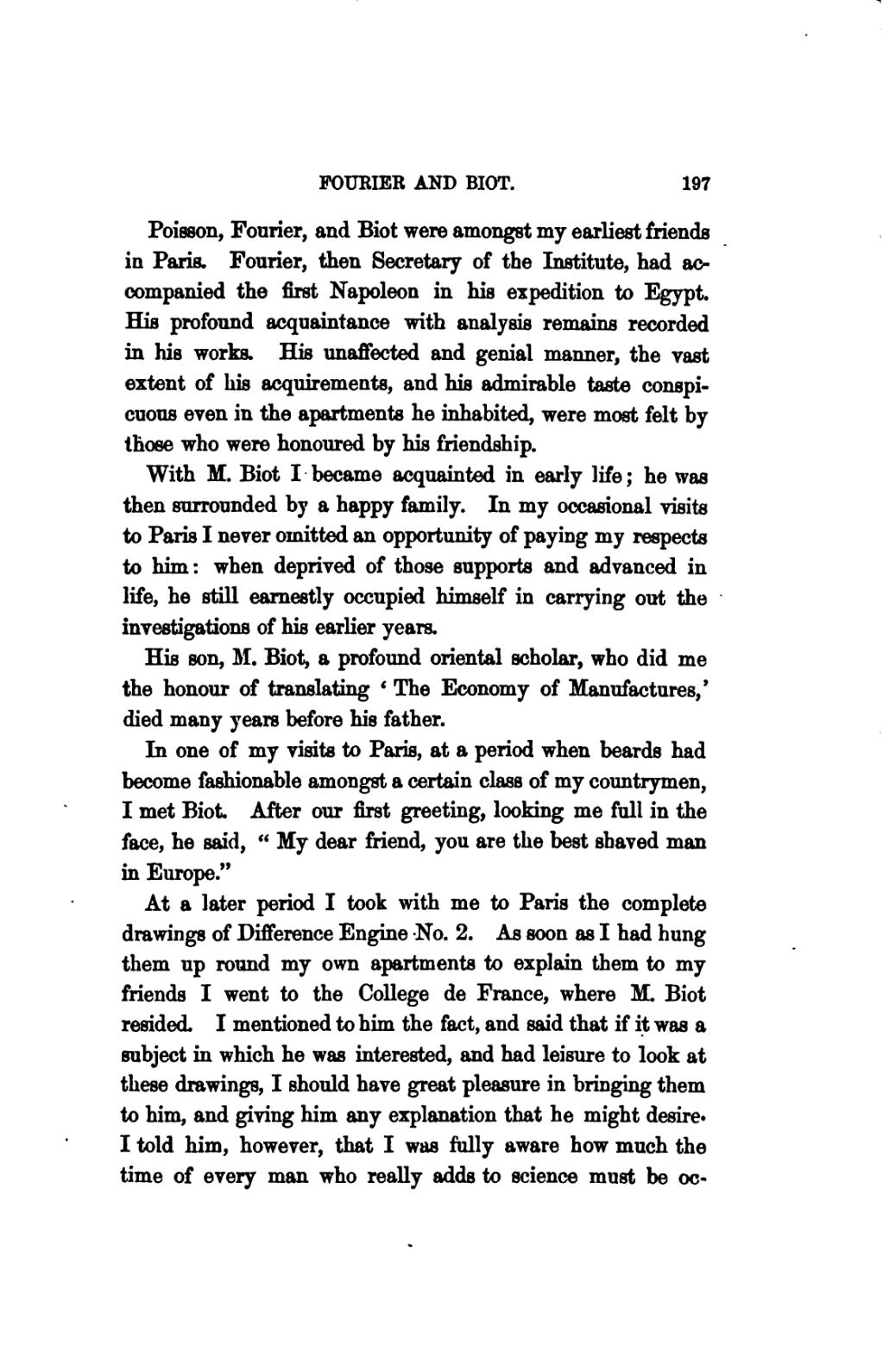Poisson, Fourier, and Biot were amongst my earliest friends in Paris. Fourier, then Secretary of the Institute, had accompanied the first Napoleon in his expedition to Egypt. His profound acquaintance with analysis remains recorded in his works. His unaffected and genial manner, the vast extent of his acquirements, and his admirable taste conspicuous even in the apartments he inhabited, were most felt by those who were honoured by his friendship.
With M. Biot I became acquainted in early life; he was then surrounded by a happy family. In my occasional visits to Paris I never omitted an opportunity of paying my respects to him: when deprived of those supports and advanced in life, he still earnestly occupied himself in carrying out the investigations of his earlier years.
His son, M. Biot, a profound oriental scholar, who did me the honour of translating "The Economy of Manufactures," died many years before his father.
In one of my visits to Paris, at a period when beards had become fashionable amongst a certain class of my countrymen, I met Biot. After our first greeting, looking me full in the face, he said, "My dear friend, you are the best shaved man in Europe."
At a later period I took with me to Paris the complete drawings of Difference Engine No. 2. As soon as I had hung them up round my own apartments to explain them to my friends I went to the College de France, where M. Biot resided. I mentioned to him the fact, and said that if it was a subject in which he was interested, and had leisure to look at these drawings, I should have great pleasure in bringing them to him, and giving him any explanation that he might desire. I told him, however, that I was fully aware how much the time of every man who really adds to science must be oc-
